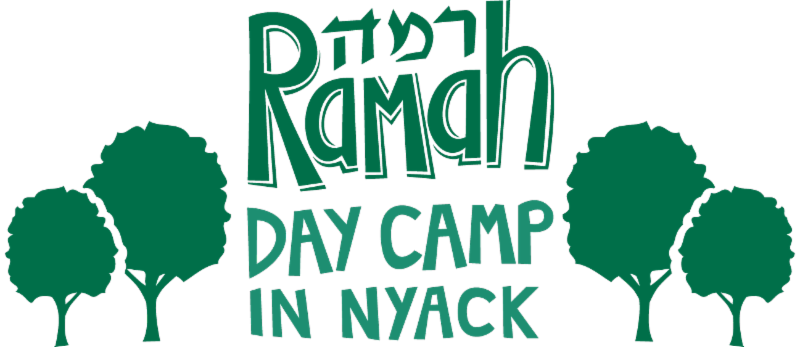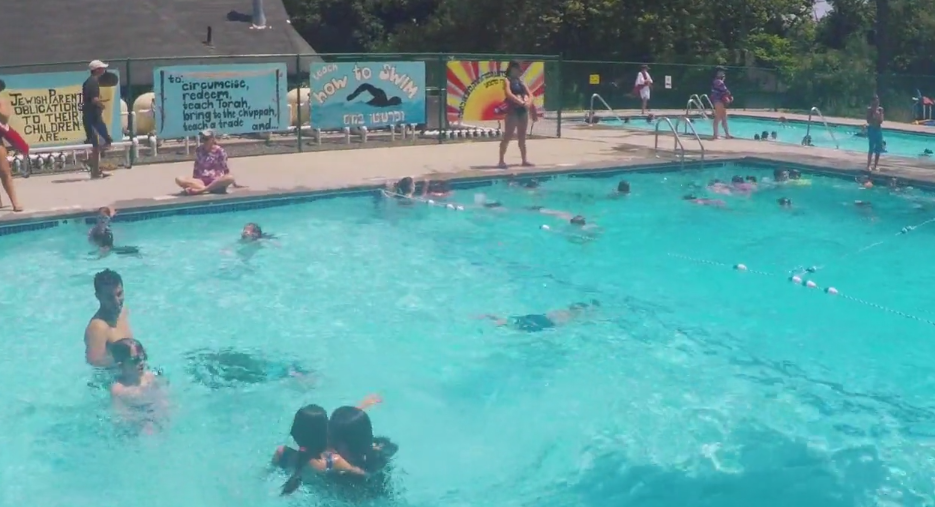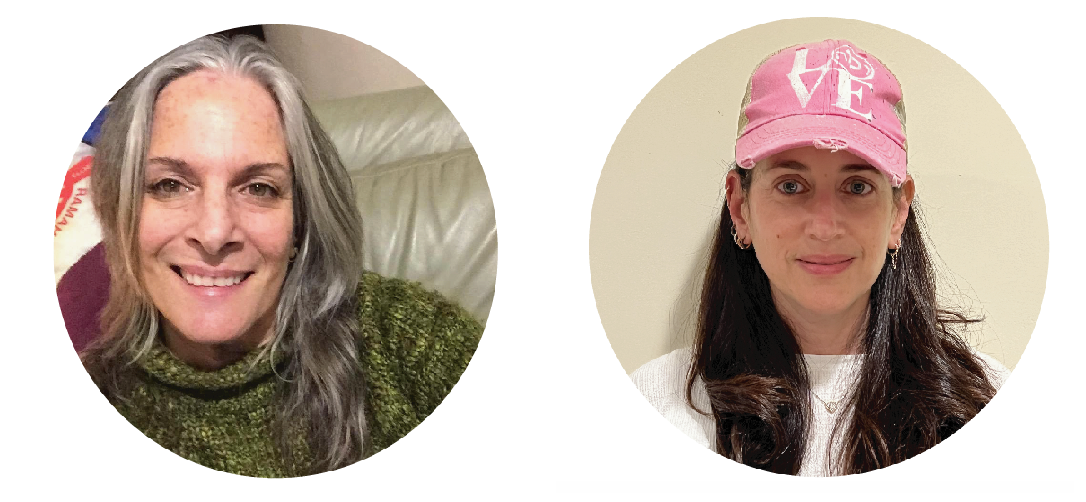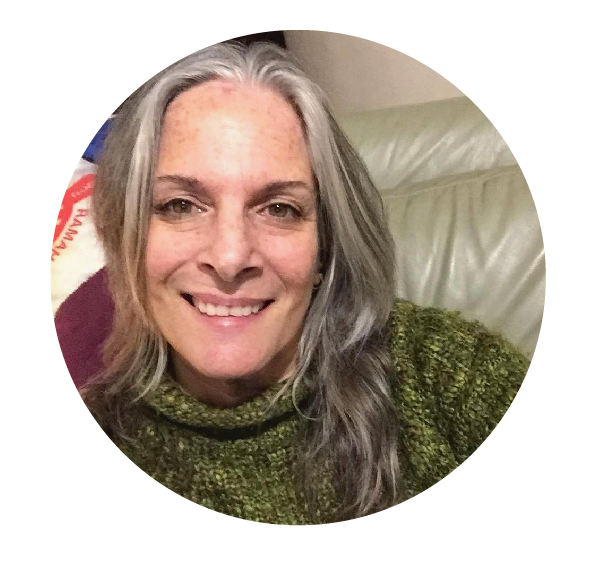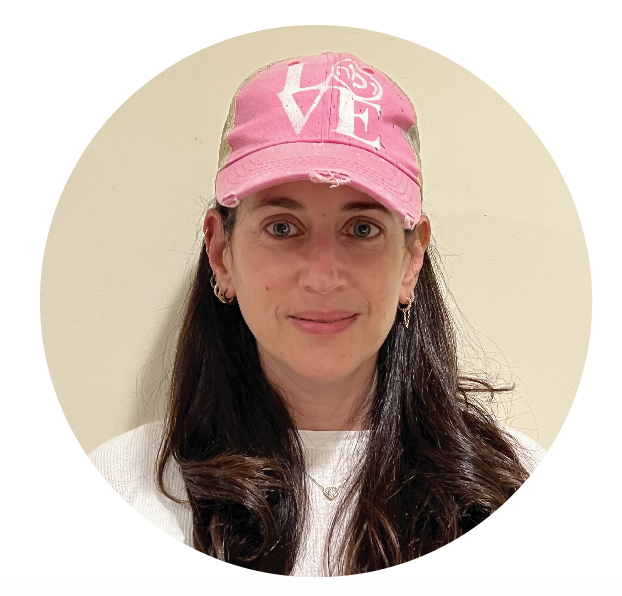Spotlight on Swim
https://ramahnyack.org/wp-content/themes/ramahnyack/images/empty/thumbnail.jpg 150 150 admin admin https://secure.gravatar.com/avatar/f797ddf95336606cda8a18a56df5907b?s=96&d=mm&r=g
Campfire Chats:
Rashei Mayim, Debby Tamir & Jodi Cohen
March 2022
As the artwork that our swim staff created (which hangs on the fence of our pools) states, “It is a parent’s obligation to teach their child to swim”…Babylonian Talmud, Kiddushin 29a. We take this holy work literally and metaphorically. Not only is swimming a life-saving skill that everyone should learn, but knowing how to “keep your head above water” and to “ride the wave” of life’s challenges are also important elements of the culture at the breicha (pool). – Debby and Jodi
What is your vision for Ramah Nyack’s swim program for Summer 2022?
Without hesitation, we will share two objectives that are consistent every year: (1) safety is our #1 priority, and (2) our goal is to ensure all children learn to love the water. The keys to realizing these objectives are creating a safe environment at the pools, with a skilled and dedicated tzevet (staff). Through consistent instruction, any chanichim (campers) who are hesitant, (or even a bit fearful) will learn to develop confidence, and feel safe and secure in the water. All chanichim will learn and enhance their skills, develop and improve their strokes, all while forming very special bonds with their swim instructors. Of course, we love to have fun, too!
Please tell us about the swim tzevet (staff).
Every summer, approximately 35 lifeguards from the US and Israel work with us at the pool (a mix of young adults and parents who work on staff). All of our lifeguards are American Red Cross certified and receive ongoing training throughout the summer. As the Rashei Mayim, it is important to us that our lifeguards participate in ongoing professional development to further enhance their skills. We are proud of our tzevet, who are dedicated individuals working together as a team, supporting one another to ensure a safe, happy and successful summer for all of our chanichim.
Chanichim often talk (sometimes even boast!) about their “swim bracelets.” How do you approach instructional swim, and how are skills evaluated throughout the summer?
First let’s discuss evaluations; then we can talk about bracelets! Within the first few days of camp, all chanichim are individually evaluated on their swimming abilities. Subsequently, they are placed in swim groups of similar skill level within their edah (division). We always meet chanichim where they are, both in terms of their comfort and skill levels.
At Ramah Nyack, we teach according to the American Red Cross Learn to Swim Program. Pre-swimmers and beginner-level swimmers get comfortable in the water by learning how to blow bubbles, submerge, and float on their bellies and their backs. They also incorporate rotary breathing and foundations for stroke development. Instructors work closely with more advanced chanichim to develop and improve swim skills, teaching the various strokes, including freestyle, breaststroke, elementary backstroke and back crawl.
Swim groups range from 3-6 chanichim per group (with a dedicated lifeguard), depending on age, and meet with their instructors everyday. At some point throughout the summer, most of our swim groups will have an opportunity to swim in all four of our pools. Chanichim are often evaluated (in a fun and non-intimidating way), and are moved to different groups according to their individual needs, as appropriate throughout the summer.
Swim bracelets! Swim bracelets are provided to chanichim beginning in Nitzanim (entering 2nd grade). These bracelets are based on deep water evaluations (a test for endurance and treading in deep water) and are used during “free swim” to ensure safety.
- Green: chanichim who are not yet comfortable in water over their heads are permitted to swim in the green/shallow areas of the pool;
- Blue: chanichim who can swim in deep water, but also need to be in a section of the pool in which they can stand;
- Red: chanichim who have passed the deep water test are permitted to swim in the deepest areas of the pool (and anywhere).
This color coded system is explained to our chanichim early on in the season and is critical to ensure a safe swimming environment. Chanichim are given the opportunity to take the deep water test throughout the summer, during their instructional swim classes.
That brings us to “free swim.” Beyond the bracelets, what does free swim look like?
Free swim is a great time of day, which allows all children to swim freely (within their approved swim level) and supervised, with their friends. We implement a daily “buddy system” during free swim, whereas each camper picks a buddy within their bunk to swim with for that day.
What do you do if a camper is afraid of the water?
Should a camper come to the pool area and be afraid of the water, we will never force them to go in. We work very closely with these children and ease them in, often starting simply by getting our feet wet together. This may involve standing or sitting on the stairs, and sometimes we start very slowly by using a bucket or bowl to wet their feet, hands, and legs. While we get the child comfortable and used to the feel of the water, we continuously assure them that we are there to keep them safe. A big part of our work with those who are afraid is to facilitate a personal relationship with the instructor. Once a sense of trust is established, we are able to encourage our chanichim to take the next step, and to try new things. As we mentioned earlier, we always meet chanichim where they are. We help them work through their fears with encouragement and a sense of empowerment, while we continue to underscore that they are safe with their instructor (and lifeguard).
How do you communicate with parents/caregivers about campers’ progress?
We communicate with parents/caregivers about their camper’s progress throughout the summer, and are of course always available to speak when parents reach out with specific questions. Anyone who would like to connect with us are encouraged to please contact the office via phone at (845) 358-6240 and leave a message for us, and we will respond as soon as possible after the camp day is over (after 4:00 PM).
While chanichim chat about bracelets, adults are still buzzing about Ramah Nyack’s new(ish) towel service. For new families, would you please tell us a little bit about it?
Towel service is amazing! Fresh towels are available to all chanichim and tzevet every single day. Parents/caregivers don’t have to pack towels in their campers’ backpacks, or worse, worry about wet and dirty towels coming home each day. This means fewer items to checklist in the morning, and most importantly, less laundry! Yeah!
Please share your “WHY RAMAH?”!
We both love watching children grow and develop their swim skills. It is amazing to see how chanichim can improve and evolve over the course of the summer. Nothing compares to children feeling such a great sense of accomplishment and proud of their success! An added bonus, and a huge part of what we do, is seeing the instructors – the young adults – accomplish so much with the chanichim. The incredible team building that takes place throughout the summer brings both of us back summer after summer.
At Ramah Nyack, chanichim are celebrated for their individuality. They are taught to appreciate diversity and uniqueness. All are loved and supported – from the senior staff to the support staff, chanichim and everyone in between. Ramah is more than a camp, Ramah is a family… our family.
_____________________________________
About Debby Tamir
Debby started working at Ramah Nyack as a lifeguard in the summer of 2000. She came to camp with 3 small children who have literally grown up as part of the Ramah Nyack family, and she found her second home. Since the summer of 2001, Debby has had a leadership role at the pool. She lives in Israel with her 3 grown children, and during the off-season, Debby works as an IBCLC Lactation Consultant, a Lamaze Childbirth Educator and American Red Cross CPR and Lifeguarding instructor. She worked for many years as a NY State licensed massage therapist, combining her love of water with massage and became trained as a Wastu practitioner. She was also a volunteer EMT in her local ambulance corp. Debby has started working this year on a project for the National Ramah Commission which is helping to bridge the Masorti Youth Movement NOAM with Ramah Camps in the US and Canada. It has been a dream come true for Debby to connect Israeli youth with the magic of Ramah.
About Jodi Cohen
Jodi has worked at Ramah Nyack for 10 years. A certified lifeguard and lifeguard instructor, of all of the areas in camp that she’s worked, she definitely loves her role as Rosh Mayim! A mom of three, Jodi’s children are also Ramahniks, one of whom will be on staff this summer. In the off-season, Jodi wears many hats. She is a social worker for a foster care agency, as well as a licensed real estate agent servicing Bergen County. Jodi teaches private swimming lessons, and is passionate about helping children who are fearful, or beginner swimmers, develop a love for swimming. Ramah is Jodi’s summer home and her “extended family.” Jodi is very proud to be a part of the Ramah Nyack community.
- Posted In:
- Uncategorized
